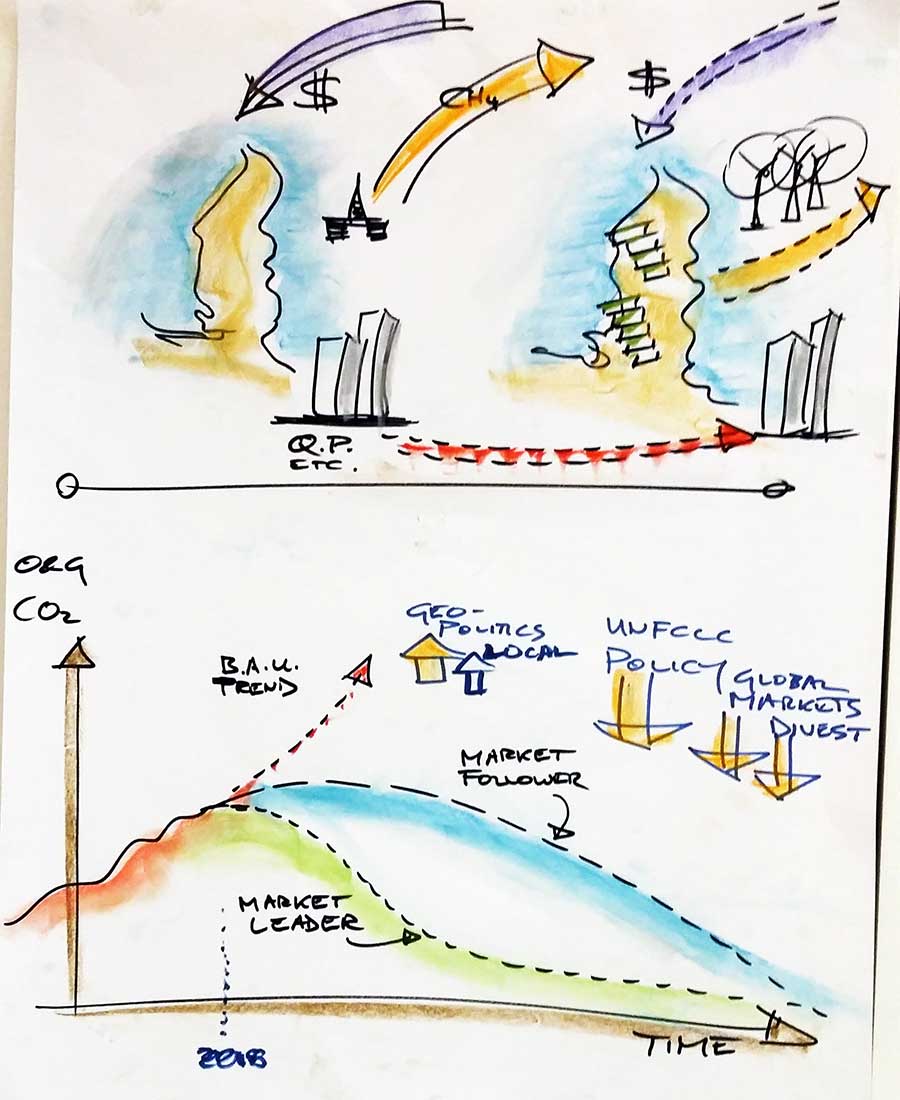Low carbon futures (Qatar)

Qatar may be at a crossroads in environmental history. With the world’s third-largest natural gas reserves its wealth is huge, but vulnerable. Everything could change with international climate change policy, market effects, or national priorities. For the shift to renewable energy, there is a clear advantage for the first mover. All this points to a Foresight-III approach to building capacity, for collaborative learning, thinking, creating and doing.
In this two-day workshop delegates were taken on a journey to create a vision of a low carbon future in Qatar, identify challenges and barriers, and finally develop pathways that overcome the barriers and lead towards a low carbon future in Qatar.
The workshop used the synergistic Foresight-III methods to facilitate collaboration and open discussion. All delegates were thought-leaders in their own field, such as carbon management, policymaking, infrastructure design and delivery.
The workshop also explored how the carbon reduction, offsetting and management program of the 2022 FIFA World Cup can be used to enable development towards a low carbon future in Qatar. The workshop challenged current views and called for a system-wide approach to understanding the underlying challenges, barriers and opportunities.
The program was sponsored by the Josoor Institute on behalf of the Supreme Committee for Delivery and Legacy. More information on – http://www.josoorinstitute.qa/education-development/courses/professional-development-workshops/towards-low-carbon-future-qatar
What is the synergistic contribution?
There is a mismatch: energy & climate issues are complex and inter-connected – but policy or market measures are generally not. There are many actors involved, business, finance, government, designers, science, innovation, infrastructure: and many factors, such as supply chains, markets, finance, regulations, skills. All these interact in different ways – social, technical, economic, ecological, political, cultural and so on. How to put it all together?
This calls for new ways of collaborative learning, thinking, creating and working – a ‘collective climate intelligence’ or ‘deeper environmental mind’. Such intelligence can work in different layers or ‘modes’:
- ‘Mode-I’ ‘clever’ energy/climate systems: functional / techno-economic systems of energy supply & demand
- ‘Mode-II’ ‘smart’ energy/climate systems: evolutionary / adaptive / optimizing energy / climate markets, innovation, enterprise
- ‘Mode-III’ ‘wise’ energy/climate systems: these work on the principles of human-technology collective intelligence, with integrated systems which can learn, think, create and collaborate.
Here we use the synergistic methods for mapping each of these modes, and designing future pathways to address the energy / climate challenge, from local to global.
